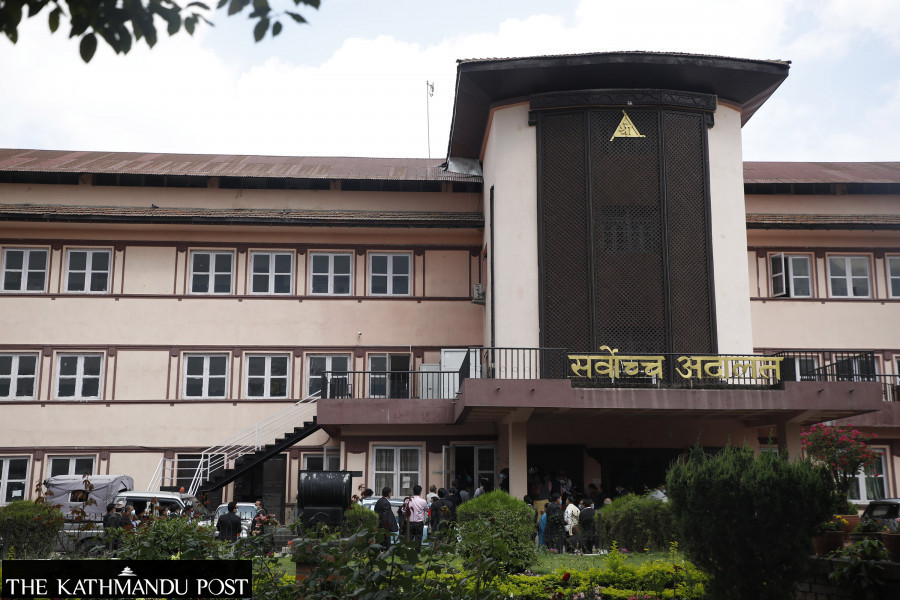National
Supreme Court accepts petition challenging date of local level elections
The court had earlier refused to register the petition, which argues that May 13 polls will deprive thousands of elected representatives of their right to serve for full five years.
Binod Ghimire
The Supreme Court has decided to allow a petition challenging the government decision to hold local elections across the country on May 13 in a single phase.
Revoking an earlier decision of the court administration to reject the petition, a single bench of Justice Ishwar Prasad Khatiwada on Wednesday directed the administration to register the petition.
Sanjeev Kumar Sah, the mayor of Bhangaha Municipality in Mahottari district, on February 8 had approached the court with his petition demanding that the poll date decision be scrapped. Sah argued that holding elections across the country for 753 local units breaches the constitutional provisions that guarantees five years’ terms for all representatives.
However, the Supreme Court administration the next day refused to register the petition, saying Sah's claim doesn’t hold ground. It said as the Local Election Election Act clearly says the tenure of the local representatives will be counted based on the first phase of elections, Sah’s claim that their five-year tenure will not be completed by May 13 was baseless.
However, Justice Khatiwada’s bench has said Sah’s petition since has raised a serious question about the tenure of the local representatives and conflicting provisions in the Act and the constitution, it is necessary for the court to decide the matter.
“The different provisions in the Constitution of Nepal and the Local Level Election Act need to be interpreted,” reads Khatiwada's order.
In 2017, local elections were held in three phases—on May 14, June 28 and September 18.
In 2017, elections were held in Bagmati, Gandaki and Karnali provinces in the first phase.
In the second phase, elections were held in Province 1, Lumbini and Sudurpaschim. The third and the last phase of election was held in Province 2, which was recently named Madhes. Sah comes from Madhes Province.
In the first phase, 14,556 representatives were elected for 283 local units. Similarly, the number of representatives elected from the second phase stood at 15,038 for 334 local bodies. In the third phase, elections were held for 136 local bodies to elect 6,627 local representatives.
Sah's petition has argued that if the elections are held on May 13, those elected in the third phase elections will have to retire four months before their five-year tenure ends. Similarly, those elected in the second phase will have to retire a month prior to the completion of their five years of term guaranteed by the Constitution of Nepal.
As per Article 215 (6) of the constitution, the terms of office of the chairperson, vice-chairperson, ward chairperson and members shall be five years from the date of their election. The government on February 7 in consultation with the Election Commission announced that the local elections will be held on May 13 in a single phase.
“Sah’s petition has automatically been registered with the Supreme Court’s order on Wednesday,” Baburam Dahal, a spokesperson at the court, told the Post.
The Election Commission has been claiming there were no legal implications as per the Act.
Section 55 of the Local Level Election Act 2017 states that the term of all local representatives is deemed to have begun from the seventh day of the date of the first phase of elections. By that extension, all representatives, including those who were elected from June 28 and September 18 elections, will have their terms ended on May 20, as the first phase was held on May 14.
“The court has given initial justice to me,” Sah told the Post. “By declaring elections for May 13, the government has breached the constitution, which mandates the elected representatives to work for full five years. I am now confident that the Supreme Court will direct the government to follow the constitution.”




 13.12°C Kathmandu
13.12°C Kathmandu














